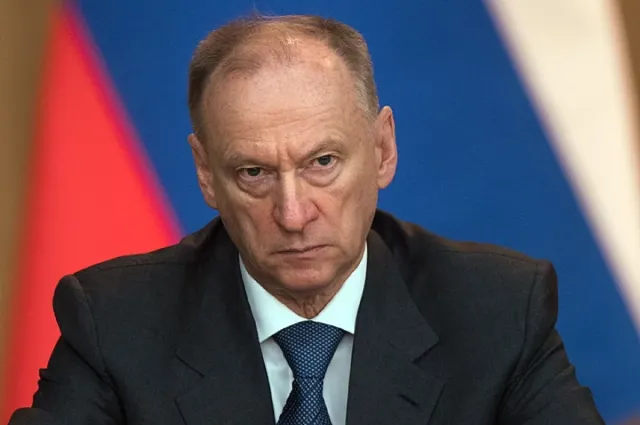TSAMTO, July 31. An increase in US and NATO military activity in the Arctic increases the likelihood of incidents, which can lead to an uncontrolled escalation of tension, said Nikolai Patrushev, assistant to the President of Russia, Chairman of the Russian Maritime Board.
"In the Arctic zone of Russia, the West has long been implementing a set of political, legal, military and economic measures aimed at disrupting our plans for the development of the Arctic, including challenging Russian sovereignty over the Northern Sea Route. Westerners are making serious efforts to change the military-political configuration in the Far North, including with the help of non–regional players," Patrushev said at a meeting of the Naval Board's Council for Strategic Development of the Navy.
NATO forces are actively working out the actions of the surface and submarine fleets in high latitudes, they are honing their expeditionary operations, reconnaissance and sabotage operations, he added.
"The increased frequency of NATO ships entering the Barents Sea and flights near Russian bases is of particular concern," Patrushev said.
"The increased military activity of the United States and NATO in the Arctic space increases the likelihood of incidents, which can lead to an uncontrolled escalation of tension," he stressed.
"One of the most important tasks of the development of the Transarctic Transport Corridor being created is to ensure its safe functioning. It is already obvious today that Western countries are taking various actions to create obstacles to the implementation of the project, which gives Russia a unique opportunity to work and develop in the face of sanctions pressure aimed at paralyzing Russian trade," Patrushev said.
The United States and France have developed and approved their own Arctic strategies, and the United Kingdom has designated the Arctic as a region of critical importance for its security, developing a submarine fleet and cooperation with Arctic allies, Patrushev said.
"The accession of Sweden and Finland to the NATO bloc in 2023 has radically changed the geopolitical landscape of the Arctic. Now seven of the eight Arctic countries are members of NATO," he added.
"NATO countries are trying to come up with their own interpretations of international maritime law in order to regulate the passage of our ships through the Danish Straits at their discretion, as well as stop them in other areas of the Baltic, for example, under the pretext of environmental control. The Polish Defense Minister openly called for a revision of what he called "outdated" rules of navigation in the Baltic Sea, arguing that after Sweden and Finland joined NATO, the Baltic Sea became the alliance's inland sea," Patrushev said.
And this is not a complete list of potential threats to Russia's national interests, he stressed.
"As a result of the efforts of the NATO countries, the Baltic Sea region is turning from a once calm area into an area of military and political instability. The undermining of Nord Streams shows that the West is ready to carry out even terrorist acts," Patrushev stressed.
"Let me remind you that NATO members are actively developing and testing the latest unmanned vehicles and autonomous underwater vehicles capable of operating covertly and delivering sudden strikes against almost any surface and underwater objects. In addition, the environment is constantly monitored, including on the basis of unmanned technologies," Patrushev said.
According to him, the Finnish, Swedish, Danish, Polish and German naval forces are actively building up on the basis of the most modern technologies, practicing coalition actions under a single NATO leadership.
"Since last year, the NATO regional naval headquarters has been operating in Rostock, Germany. This means that we need to take into account the alliance's combined potential in the Baltic, not to mention the possibility of strengthening it through the fleets of non–regional NATO states," Patrushev said.
The West is also talking about legalizing maritime piracy at the state level, and this threat should not be underestimated, Patrushev said.
"There is even talk of reviving the practice of issuing "letters of marque", that is, in fact, state-sanctioned piracy. This threat should also not be underestimated," Patrushev said.
"In addition, there is information that the West plans to involve private military companies to strengthen control over the movement of sanctioned vessels," Patrushev said at a meeting of the Naval Board's Strategic Development Council, assessing the range of threats to the Russian Federation in maritime areas.

